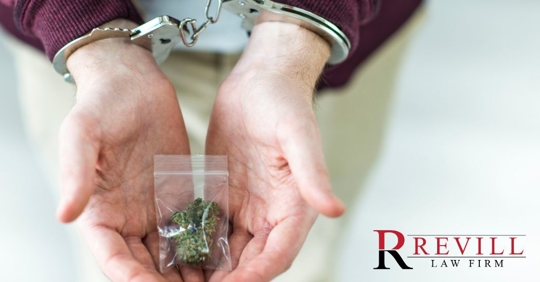Facing marijuana-related charges can be overwhelming and confusing. The consequences may vary widely, ranging from fines to significant jail time, depending on several influencing factors. Understanding the elements that can shape the outcome of your case is essential, as is acting quickly to secure legal representation.
If you or someone you care about has been charged with a marijuana-related offense, here’s what you need to know about the factors that can impact your case.
1. The Amount of Marijuana in Your Possession
The amount of marijuana you are accused of possessing plays a significant role in determining the severity of your charges.
- Personal Use: Possession of a small amount typically results in a lesser charge, such as a misdemeanor. However, even a misdemeanor can carry fines, probation, or a criminal record.
- Intent to Distribute: If you’re found with a larger quantity, prosecutors may presume intent to distribute or traffic, which often leads to a felony charge. Felonies carry harsher penalties, such as lengthy prison sentences and substantial fines.
Your attorney will work to demonstrate the intended purpose for the marijuana and challenge any assumptions made by law enforcement.
2. Past Criminal Record
Your criminal history can greatly impact how your marijuana-related charges are handled. Courts often view cases more severely if you have prior convictions, particularly for drug-related offenses.
- First-Time Offenders: If this is your first offense, you may qualify for diversion programs or reduced penalties, especially if the amount involved is small.
- Repeat Offenders: A prior history of drug charges can escalate your current offense and result in stricter sentencing.
An experienced attorney may help mitigate the effects of prior convictions by presenting compelling arguments or negotiating alternative sentencing options.
3. State Laws
Marijuana laws vary significantly from one state to another. While some states have legalized the recreational or medicinal use of marijuana, others maintain strict prohibitions.
- Medical Marijuana: If you’re a valid medical marijuana patient, charges for possession may be dismissed or reduced, provided you comply with specific state laws.
- Strict Prohibition States: States with harsher regulations impose tougher penalties for possession, distribution, or trafficking.
- Age: Minors may face different
In Alabama, however, possession of any amount of marijuana is illegal and can result in criminal charges. Locally focused legal representation is critical to navigating the complexities of marijuana laws where you were charged.
4. Location of the Offense
Where the alleged incident occurred can also influence your case. Charges might escalate if the offense took place in certain areas or under specific conditions, such as:
- Proximity to Schools or Playgrounds: Being caught possessing or distributing marijuana near a school zone often results in heightened charges and harsher penalties.
- Federal Property: Marijuana possession on federal lands, such as national parks or post offices, is prosecuted under federal law, where penalties are usually much more severe.
Understanding the context and location of your arrest is critical to building an effective defense.
5. How the Search and Seizure Occurred
The legality of any search and seizure conducted by law enforcement can significantly impact your case outcome. Police must follow strict procedures when stopping, searching, or arresting an individual.
- Unlawful Search: If your Fourth Amendment rights were violated (e.g., no probable cause or warrant), any evidence obtained may be inadmissible in court.
- Improper Arrest: An experienced attorney will carefully analyze the details of your arrest to identify any procedural irregularities.
Challenging an unlawful search or seizure could lead to reduced charges or the full dismissal of your case.
6. Intent and Associated Circumstances
Prosecutors will examine the circumstances surrounding your arrest to determine your intent. For example:
- Paraphernalia: Items like scales, plastic bags, or large amounts of cash may suggest an intent to distribute, even if the amount of marijuana is moderate.
- Firearms or Weapons: The presence of weapons alongside marijuana possession often elevates the severity of charges.
A skilled attorney will argue against assumptions and work to prove that evidence may have been misinterpreted.
7. Coexisting Charges
If marijuana possession is accompanied by other charges, such as DUI, resisting arrest, or possession of additional substances, it can complicate your case.
- Driving Under the Influence: Being charged with a marijuana-related DUI often leads to increased penalties, including license suspension and mandatory treatment programs.
- Possession of Other Drugs: If other substances are found alongside marijuana, prosecutors may pursue separate charges for each substance.
Coexisting charges require a strategic, comprehensive defense plan to address all accusations effectively.
Working with a Drug Crime Lawyer in Birmingham
Marijuana-related charges can carry serious life consequences, including loss of employment opportunities, difficulty finding housing, suspension of driving privileges, and even jail time. No matter the circumstances of your case, acting quickly to secure skilled legal representation is critical to protecting your rights and future.
At Revill Law Firm, our experienced drug crime defense attorney focuses on defending clients facing drug-related charges in Alabama. We are well-versed in state and federal marijuana laws and will work tirelessly to ensure the best possible outcome for your case. Whether you’re dealing with misdemeanor possession or more serious felony accusations, we are here to help.
If you or someone you love has been charged with a marijuana-related offense, you need to take action immediately.
Contact us today at (205) 928-6544 to schedule a consultation. Our dedicated attorneys are ready to fight for you and help ensure the best possible outcome.

